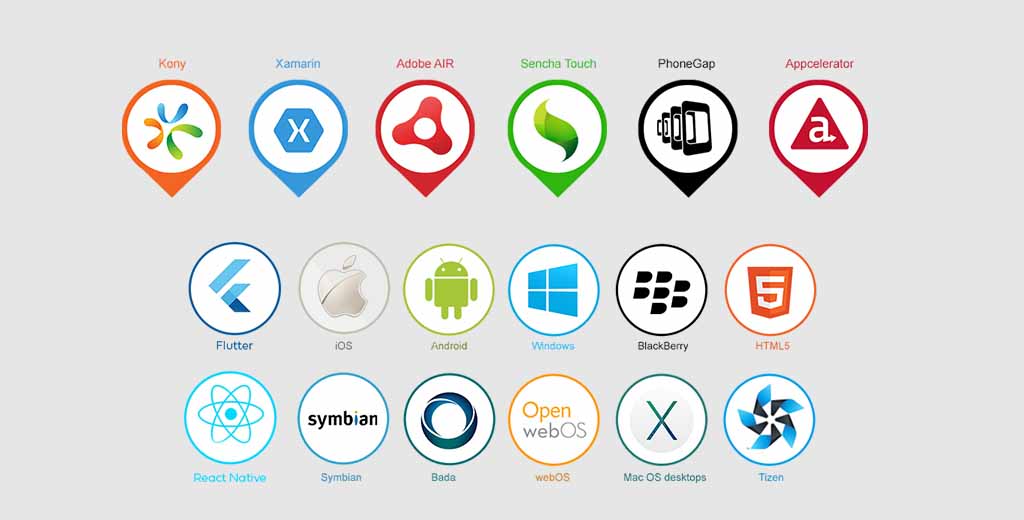Choosing the Best App Development Platform for iPhone and Android

With the ever-increasing demand for mobile applications, businesses are faced with the crucial decision of choosing the right app development platform. The dominance of iPhone and Android in the mobile market makes it essential for businesses to target these platforms. However, with numerous options available, it can be challenging to determine which platform will best suit your needs.
In this comprehensive guide, we will explore the factors to consider when selecting an app development platform for iPhone and Android. From examining the pros and cons of each platform to understanding the development process, we will provide you with the insights necessary to make an informed decision. So, let's dive in and discover how to choose the best app development platform for your business.
1. Understanding the Differences Between iOS and Android
Before delving into specific app development platforms, it is crucial to understand the fundamental differences between iOS and Android. This section will provide a comprehensive comparison of the two platforms, including their market share, user demographics, and development environment. By gaining an understanding of these differences, you will be better equipped to make an informed decision.
2. Native App Development for iOS
Native app development refers to building applications specifically for a particular operating system. In this section, we will explore the benefits and drawbacks of developing native iOS applications. From enhanced performance and access to exclusive features to the limitations of platform-specific development, we will weigh the pros and cons of choosing a native app development approach for iPhone.
3. Native App Development for Android
Similar to native app development for iOS, this section will focus on the advantages and disadvantages of building native Android applications. We will discuss the flexibility and customization options available on the Android platform, as well as the potential challenges associated with fragmentation and device compatibility. By understanding the unique aspects of native Android development, you can determine if it aligns with your app goals.
4. Cross-Platform App Development
Cross-platform app development allows developers to build applications that can run on multiple platforms, such as iOS and Android. In this section, we will explore the benefits of cross-platform development, including code reusability, cost-effectiveness, and faster time-to-market. We will also delve into the limitations and considerations associated with this approach, ensuring you have a comprehensive understanding of cross-platform development.
5. Popular App Development Frameworks for iOS
Choosing the right app development framework is crucial for efficient iOS app development. This section will cover some of the popular frameworks available, such as React Native, Flutter, and Xamarin. We will discuss the features, performance, and community support of each framework, helping you make an informed decision when selecting the most suitable framework for your iOS app development needs.
6. Popular App Development Frameworks for Android
Similar to iOS, Android offers a variety of app development frameworks that streamline the development process. In this section, we will explore frameworks like Kotlin, Java, and Flutter, and compare their strengths and weaknesses. By understanding the capabilities and compatibility of each framework, you can make an informed decision when choosing the ideal development framework for your Android app.
7. Evaluating Third-Party App Development Tools
Beyond native and cross-platform development, various third-party tools and services can simplify the app development process. In this section, we will discuss the advantages and disadvantages of utilizing tools like Appcelerator, PhoneGap, and Ionic. By evaluating the features and compatibility of these tools, you can determine if they align with your development requirements.
8. Factors to Consider When Choosing an App Development Platform
Selecting the best app development platform involves considering several factors. This section will provide a comprehensive list of factors to consider, including app complexity, target audience, budget, and timeline. By thoroughly evaluating these factors, you can make an informed decision that aligns with your business goals and resources.
9. Case Studies: Successful App Development Examples
Examining real-world examples of successful app development can provide valuable insights and inspiration. In this section, we will explore case studies of prominent apps developed for both iOS and Android platforms. By analyzing these examples, you can gain a better understanding of the strategies and approaches that lead to app success.
10. Making the Final Decision: Which Platform is Right for You?
After considering all the factors and exploring various development options, it's time to make the final decision. This section will provide a step-by-step guide to help you evaluate your requirements, assess the available options, and ultimately choose the best app development platform for your iPhone and Android app. By following this guide, you can confidently make a decision that will drive your app's success.
In conclusion, choosing the best app development platform for iPhone and Android is a crucial decision that can significantly impact your app's success. By understanding the differences between iOS and Android, exploring native and cross-platform development approaches, evaluating frameworks and third-party tools, and considering various factors, you can make an informed decision that aligns with your business goals and resources. So, take the time to research and assess your options, ensuring you select the ideal platform to bring your app idea to life.

Post a Comment for "Choosing the Best App Development Platform for iPhone and Android"
Terimakasih Telah Berkunjung Di Blog Ini, Jika Merasa Artikel Bermanfaat Jangan Lupa Untuk DiShare.
Atas Kerjasamanya Admin Mengucapkan Terimakasih.
----Katingo Take----